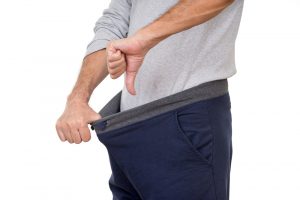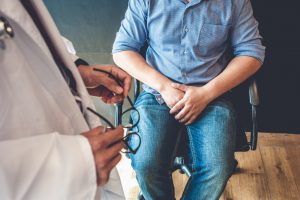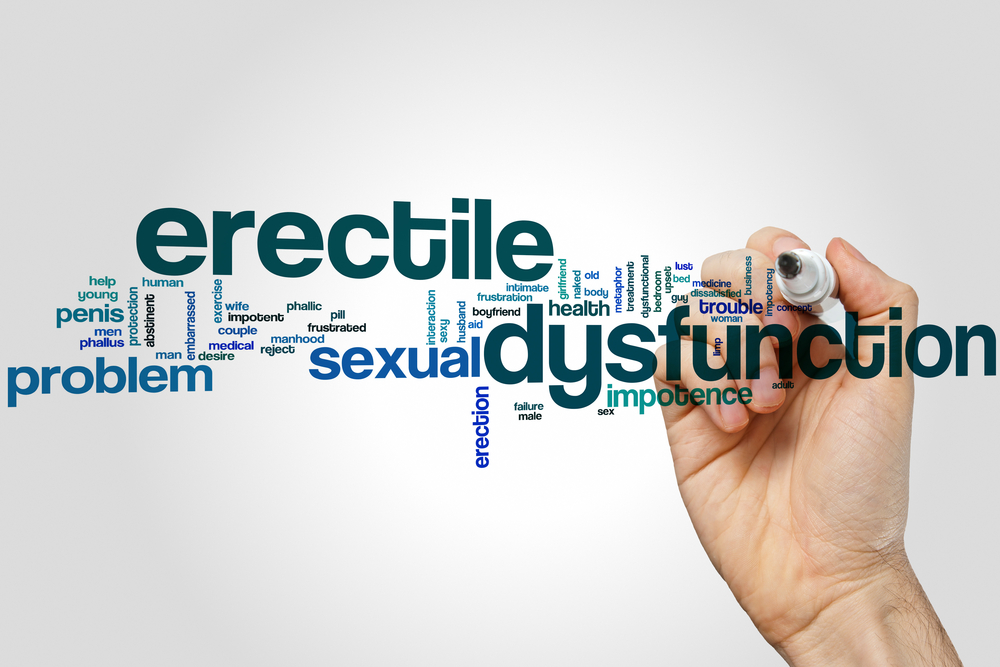Erectile dysfunction, or ED, is more common than you think – it’s a sexual problem affecting millions worldwide. Here’s how to treat (if not reverse) it.
The National Institutes of Health (NIH) says you might have ED if:
- You can’t get an erection every time you wish to have sex.
- You can get an erection when sex, but it doesn’t last long enough to satisfy.
- You can’t get an erection at all.
However, it must be noted that difficulties in obtaining and maintaining an erection are perfectly normal when it happens occasionally. ED becomes a real problem when it starts getting in the way of your sex life and relationships.
The good thing is that you aren’t alone and that there are ways you can treat ED and, in some cases, reverse it entirely. Most men struggling with ED generally find a treatment that works for their unique situation. Let’s discuss the ways.
Is ED reversible?
 ED is caused by multiple factors – some of which may be reversed, and others might be treatable. ED might also be a combination of these factors. And reversing ED may all just be a matter of pinpointing its causes.
ED is caused by multiple factors – some of which may be reversed, and others might be treatable. ED might also be a combination of these factors. And reversing ED may all just be a matter of pinpointing its causes.
One of the most common reversible causes of ED is going off medications that might affect erectile function. Particular medications may lead to ED, and reducing or completely stopping the dose – of course, under the guidance of a qualified health care provider – may improve erectile function. Here are some of the medications that might be included under this category:
- Anti-hypertensives and blood pressure regulating medications such as diuretics or beta-blockers
- Drugs used to treat prostate cancer (ex. Antiandrogens)
- Antidepressants like selective serotonin reuptake inhibitors
- Barbiturates (sedatives used to help calm patients or sleep better)
- Acid reflux/stomach ulcer medications
Certain lifestyle habits exacerbate ED. Fortunately, these can be reversed. Here are some ED-inducing habits you might want to knock:
- Inadequate diet
- Excessive alcohol consumption
- Recreational/illegal drug use
- Obesity/being overweight
- Lack of exercise or physical activity
Yes, it’s true: ED may still be reversible simply by introducing healthier lifestyle changes, such as smoking cessation, consuming a nutritious diet, getting regular exercise, staying within an ideal weight, and refraining from overindulging in drugs and alcohol. The best part is that all of these practices are fundamental to a healthy lifestyle conducive to better erectile performance.
Psychological factors also play a role by themselves or interact with the ED-inducing lifestyle habits we’ve already discussed earlier. Stress, performance anxiety, relationship problems, and confidence issues have all been associated with erectile dysfunction.
ED might also indicate something more serious going underneath the hood; these underlying medical conditions are largely treatable. Speak to your healthcare provider if you suspect there might be something more to it. ED-related health conditions might include:
- Type 2 diabetes (men with diabetes are thrice as likely to contract ED a decade earlier than men who don’t)
- Cardiovascular problems/Heart disease
- Deficient testosterone levels
- High cholesterol levels
- Hypertension
- Atherosclerosis (cholesterol plaque-induced arterial hardening)
- Long-term kidney disease
- Multiple sclerosis
- Peyronie’s disease
- Penile, spinal, pelvic, or bladder nerve damage, injury, or history of surgery
How is ED usually treated?
 Depending on its causes, ED might be reversible through a healthy lifestyle, quitting smoking, and managing stress effectively.
Depending on its causes, ED might be reversible through a healthy lifestyle, quitting smoking, and managing stress effectively.
Your healthcare provider might also examine the medications you take to see if your prescriptions are messing with your ability to get hard (and stay hard) and modify it accordingly.
In other cases, the irreversible causes of ED might be managed with medication, supplements, or other surgical procedures.
Phosphodiesterase-5 (PDE5) inhibitors are the only FDA-approved oral prescription drugs for erectile dysfunction. These include sildenafil (Viagra), vardenafil (Levitra), tadalafil (Cialis), and AVanafil (Stendra).
PDE-5 inhibitors have been used to significant effect. And, if low testosterone is one of the factors your healthcare provider determined, they might recommend testosterone therapies (including taking a testosterone supplement like Male UltraCore).
Other herbal supplements are also used to treat erectile dysfunction, such as ginseng and fenugreek, but require further research. Penile implant surgery is also an option, where a prosthetic implant is applied to the penis (albeit a rather invasive and possibly unnecessary surgery).
Mental health is often an overlooked erectile dysfunction factor. Granted, the multiple stressors that life often presents us (such as performance anxiety, depression, confidence problems, and the general hustle and bustle of life can all mess up with your ability to get a hard and satisfying erection.
If there are any personal or relationship problems linked to your ED, speaking to your partner about it might be part of your treatment.
Conclusion
ED isn’t always reversible, but make no mistake about it: it’s perfectly manageable and treatable. ED is a common occurrence in men, and you are not alone in this struggle. Talk to your doctor if you’re experiencing any ED symptoms and explore possible treatment options that are right for you. Working with your doctor to identify the potential causes is the first step down to a more fulfilling, satisfying sex life. It’s all within your hands.
Learn how Male UltraCore can help you supercharge your performance at the gym, at the office, and in the bedroom at any age.
Male UltraCore is the #1 testosterone booster and male enhancement supplement guaranteed to help you raise your T levels, increase blood flow, and boost your energy levels. Here’s how.



